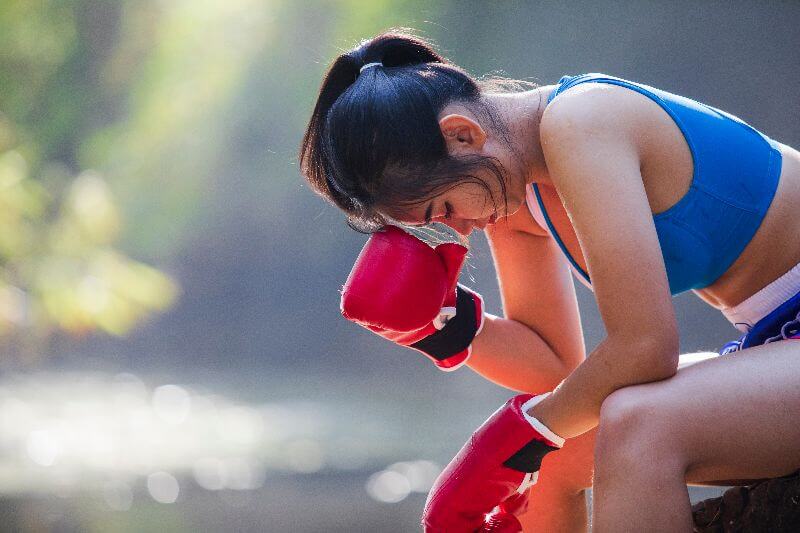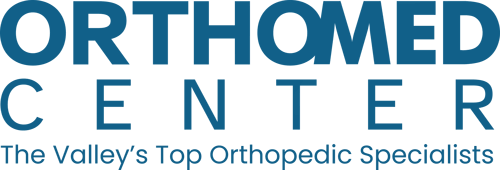A SLAP tear is an injury to the labrum of the shoulder--the ring of cartilage that surrounds the socket of the shoulder joint. The labrum helps hold the head of the humerus in place.
The term SLAP stands for Superior Labrum Anterior and Posterior. In a SLAP tear, the top (superior) part of the labrum is injured. This part of the labrum is also where the biceps tendon attaches, and a SLAP tear occurs both in the front (anterior) and back (posterior) of where the biceps attaches to the labrum. The biceps tendon itself can also be involved in the SLAP tear.
Your shoulder is a ball-and-socket joint made up of three bones: your humerus (upper arm bone), your clavicle (collarbone), and your scapula (shoulder blade).
The head of your humerus fits into a rounded socket in your shoulder blade. This socket is called the glenoid. Surrounding the outside edge of the glenoid is a rim of strong fibrocartilage (rubbery tissue) called the labrum.
The labrum helps to deepen the socket and stabilize the shoulder joint. It also serves as an attachment point for many of the ligaments of the shoulder and one of the tendons from the biceps muscle in the arm.
Injuries to the superior labrum may be caused by sudden (acute) trauma or repetitive shoulder motion. An acute SLAP injury may result from:
- A motor vehicle accident
- A fall onto an outstretched arm
- Forceful pulling on the arm, such as when trying to catch a heavy object
- Rapid or aggressive movement of the arm when it is above shoulder level
- A shoulder dislocation
Repetitive overhead shoulder motions can lead to trauma to the superior labrum over time and can gradually cause a SLAP tear. This is common in throwing/overhead athletes such as volleyball, tennis, baseball players, and weightlifters.
For many patients over age 40, SLAP tears consisting of tearing or fraying the superior labrum occur due to gradual wearing down of the labrum over time. This is a degenerative process that differs from an acute injury and is viewed as a normal process of aging.
The symptoms of a SLAP tear are similar to many other shoulder problems. If you are experiencing any of the following symptoms associated with a SLAP tear, call OrthoMed to set up a consultation:
- A sensation of locking, popping, catching, or grinding
- Pain with movement of the shoulder or with holding the shoulder in specific positions
- Pain with lifting objects, especially overhead
- Decrease in shoulder strength
- A feeling that the shoulder is going to “pop out of joint”
- Decrease in range of motion
- Decrease in throwing velocity and possibly the sense of having a “dead arm” after pitching
During your consultation, your doctor will review your medical history with you and ask you questions about your shoulder symptoms. He’ll want to know:
- When did your symptoms begin?
- Where is the location of your pain?
- Was there a specific injury or activity that caused your shoulder pain?
- What treatment have you had, if any?
- Are there any work activities or sports that aggravate your shoulder?
Your answers to these questions will help your doctor diagnose your shoulder problem.
After reviewing your medical history and discussing your shoulder problem, your doctor will conduct a thorough examination of your shoulder. He will check the range of motion, strength, and stability of your shoulder. He will also perform specialized tests to reproduce your symptoms. The test results will help him determine if additional imaging studies of your shoulder are needed.
Additionally, your doctor may order imaging studies. X-rays may be ordered to rule out any other problems with your shoulders, such as arthritis or fractures. An MRI with contrast dye may also be ordered to diagnose a tear in the labrum more clearly. (The dye is injected into the shoulder before the MRI is done.)
In many cases, the initial treatment for a SLAP injury is nonoperative. If nonoperative treatment does not adequately resolve your symptoms, then surgery may be necessary.
Nonsurgical treatment options include non-steroidal anti-inflammatory medications (e.g., ibuprofen and naproxen) to help reduce pain and swelling. Physical therapy may also be prescribed. Specific exercises are prescribed to help restore movement and strengthen your shoulder.
There are several different types of SLAP tears, and your doctor will determine how best to treat your injury once he sees it fully during arthroscopic surgery. This may involve simply removing the torn part of the labrum or reattaching the torn part using suture anchors. Some SLAP injuries are best treated by detaching the biceps tendon from its attachment to the superior labrum, shortening the tendon, and then reattaching it to the humerus (biceps tenodesis).
After surgery, you will need to wear a sling or shoulder immobilizer. Recovery time varies per patient, depending upon the extent of the injury and the specific surgery performed. Complete recovery may take several months.
When your pain and swelling after surgery have diminished, your doctor will prescribe a physical therapy protocol tailored specifically for you and your surgery. Your physical therapy regimen will start with range of motion exercises, followed by strengthening exercises as healing progresses. Strengthening exercises are usually added within 3-4 months after surgery.
Your doctor will discuss with you when it is safe for you to return to your desired activities.
The majority of patients report significantly improved shoulder strength and less pain after surgery for a SLAP tear.
If you are interested in talking to one of our orthopedic surgeons about the treatment for a SLAP tear, call OrthoMed at (209) 524-4438 to schedule an appointment. For your convenience, you may also request an appointment online.



